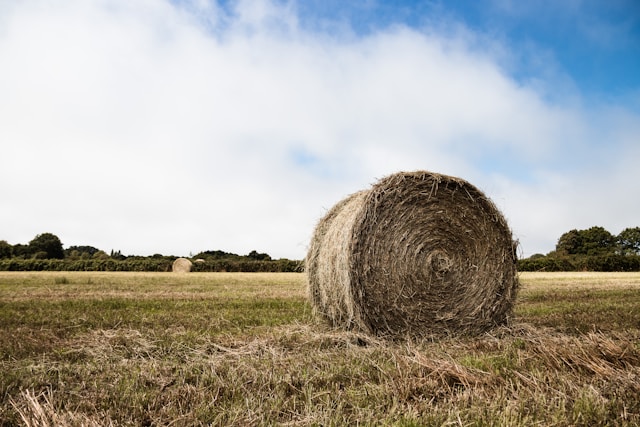Introduction:
Hay bales are a staple in livestock nutrition, offering essential nutrients and fiber that are pivotal for the health and well-being of animals. At Huber’s Animal Health, we understand the significance of providing quality hay and efficient management practices to ensure the best care for your livestock.
Why Hay is Important:
Hay provides essential nutrients necessary for the dietary needs of livestock. It’s particularly important in winter months or during dry seasons when natural forage is scarce. Different types of hay, such as alfalfa, clover, and grass hays, offer varied nutritional profiles to suit specific animal needs.
Storage and Preservation:
Proper storage of hay bales is crucial to maintain their quality and nutritional value. Store hay in a dry, ventilated area to prevent mold and spoilage. Covering hay bales can also protect them from weather elements and reduce waste.
Feeding Techniques:
Efficient feeding techniques can significantly reduce hay wastage. Using hay feeders or nets ensures that hay is dispensed in controlled amounts, keeping it clean and accessible to the livestock while minimizing trampling and spoilage.
The Role of Hay in Animal Health:
Hay plays a critical role in the digestive health of livestock. It aids in digestion and provides roughage, which is essential for the proper functioning of the gastrointestinal tract. Additionally, hay bale management is important for preventing health issues like bloating or nutritional imbalances.
Tools for Effective Hay Bale Management:
At Huber’s Animal Health, we offer a variety of tools to help with effective hay bale management. From hay nets and feeders to storage solutions, we have everything you need to streamline your hay management process.
Sustainable Hay Bale Practices:
Adopting sustainable practices in hay production and management can positively impact the environment. This includes recycling leftover hay, using eco-friendly storage solutions, and implementing rotational grazing.
Conclusion:
Effective hay bale management is key to maintaining healthy and productive livestock. By choosing the right type of hay, storing it properly, and using efficient feeding practices, you can ensure that your animals receive the best nutrition possible.
